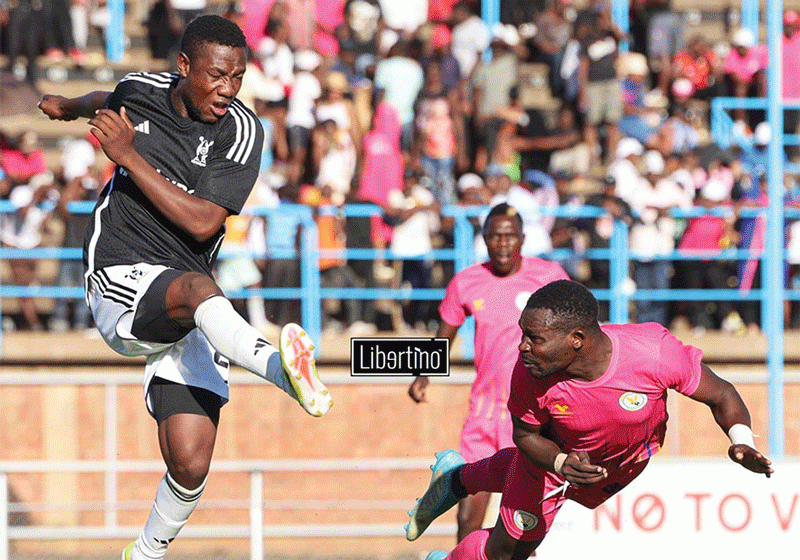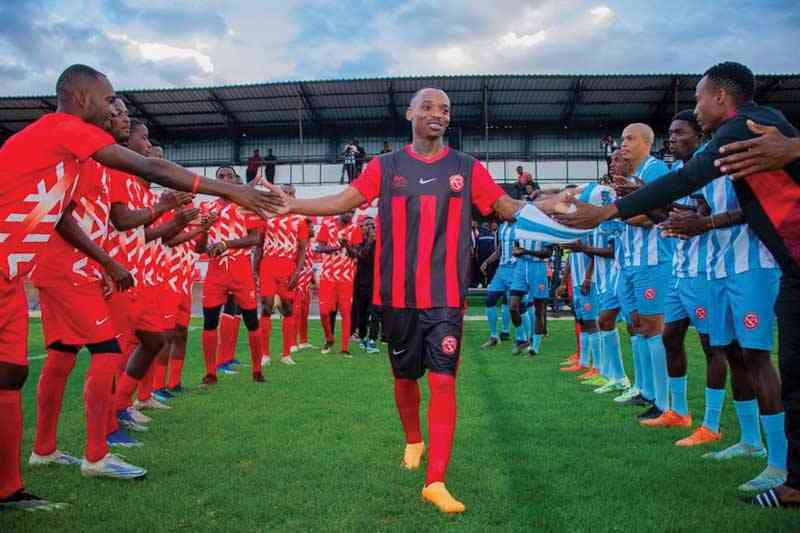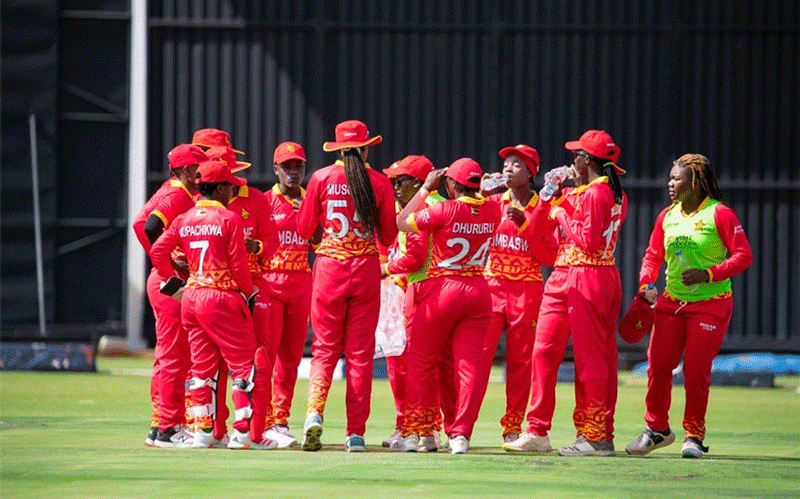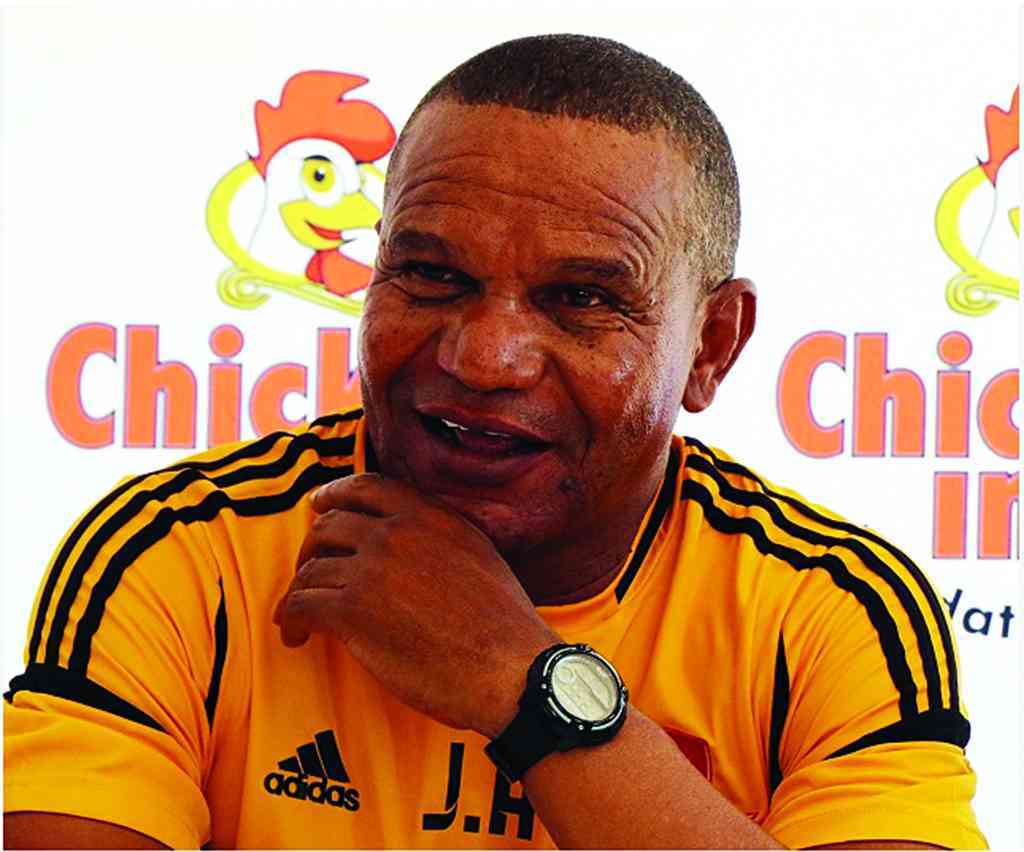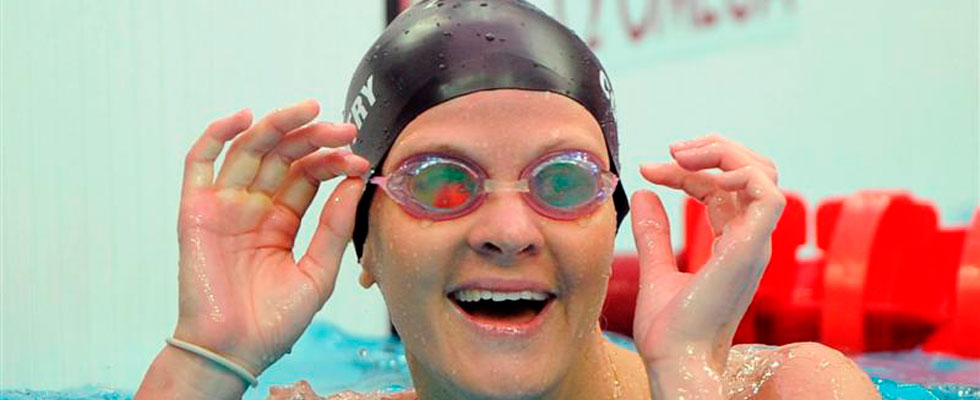
KIRSTY COVENTRY’s speech at the 1st African Asian Woman and Sport Conference this week in Kuwait:
I am an Olympian, a woman and an African.
I have always worked hard to achieve my goals and I would not change that for anything. Just because I am a woman I do not want to complain about shortfalls and be rewarded, that is meaningless. We have to prove ourselves, yes we may have to prove ourselves more than men, but we as women can handle many things: being a mother, a wife, a friend, running a business, making the men feel like they are in charge, or keeping the peace in our family. Playing all these different roles has equipped us with the expertise we need to succeed in the sporting world, in administration, in running our own company, federation or Olympic committee. We want equal positions in our lives, but we must not want them when they are being handed to us just because we are women.
This should not be a complaint forum, but a place where changes are made because of solutions given and implemented. I am here to talk about the Pressures on Trailblazers and hopefully offer some guidance on what I did to overcome or at least lessen the pressures I have faced.
We begin life with little pressure, but as we get older and more successful, the effort becomes harder and the pressure becomes greater. I have categorised the pressures I faced into five categories: peer pressure, the pressure of time-management, financial pressures, internal pressure and media pressure.
1. Peer Pressure
When I was 9-years-old I told my father I wanted to win Gold at the Olympics. He was taken aback and may have even thought to himself “okay, my daughter is completely nuts!”, but he never said it out loud and was very supportive. I thought I would get this same reaction at school. Instead I was laughed at and made fun-of for having such a big dream and I would often go home in tears.
As I started getting a little older, I started learning about sacrifice. This is the most difficult lesson I have had to learn. It can take days or even years before you get recognised for the hard work and commitments you are putting in right now. Rewards only come later but it helps to sacrifice something when you are passionate about the reason you are making that sacrifice. Many of the friends I had at swimming dropped out when they got their own cars, and started going to movies and parties, but if I wasn’t training, I was doing my homework. Maybe it was because I never got my own car or because I could see something they couldn’t, regardless, I lost even more friends because “I never had time for them”.
- Chamisa under fire over US$120K donation
- Mavhunga puts DeMbare into Chibuku quarterfinals
- Pension funds bet on Cabora Bassa oilfields
- Councils defy govt fire tender directive
Keep Reading
I attribute two things in helping me stay focused as a youngster: my parents who are the foundation of my entourage, and by believing in myself because when you believe in your dreams it doesn’t matter what anybody says and it makes sacrificing something that much easier.
2. The Pressure of Time-Management
I joined my first swimming club aged six, and I had to learn to balance sport with homework from an early age. This prepared me for something amazing. Throughout high school I was a C-student, but then I went to University and I knew the pressures would be greater, what I didn’t know is how I would cope with this. I now had to balance even harder training and commitments to a swim team with even more studying.
I had to focus more, sacrifice more and work harder. In the same year I won Gold in Athens 2004, I became an A-Student.
3. Financial Pressures
Financial pressure has always been a problem in my career as an athlete. My parents did whatever they could to ensure I got to my competitions, but what was going to happen after high school? I still remember my mum, dad and me in tears when I read the letter granting me a full scholarship to Auburn University in Alabama, United States.
I would be the first person in my family to go to university and because we couldn’t afford it, the scholarship was instrumental in getting me a higher education and better swimming. I was ready to go because I needed stronger swimmers to make me stronger, I needed faster swimmers to make me faster, I needed that increase in competition to bring out the best in me.
But in order to get that, I needed to leave home and I was only 17. The pressure of leaving home was tough, but I was in an environment where every other person had faced similar things to me and we became a team – for the first time in History the woman’s team went on to win the NCAA championships and we did so three years in a row. If you are committed, you persevere and make the sacrifices you will be rewarded; you just might not know when.
I did well during my university and graduated with a degree in hotel and restaurant management. I had also done well at the Athens Olympics and so when I left university to become Professional I was able to find some sponsorship. The sponsorship I got was never enough and nothing compared to my fellow athletes from other international countries, but it helped. My coach Kim Brackin, understood my position and throughout the 13 years we have been together, she has allowed me never to pay her. She became part of the foundation that is my entourage.
With more training, more winning and still a lack of financial support from home I was granted help from the Olympic Solidarity. This has helped me ensure I can pay for dry land training and gym coaches as well as helping me get to my competitions.
Committing myself to swim at my 5th Olympics in Rio 2016 was a tough decision because I know how hard it will be to train for another three years and the financial pressure it puts on an athlete is huge. My saving grace is knowing there are people out there, and organisations that can help and if you reach out to them, they could support you.
4. Internal Pressure
This could be the biggest unnecessary thing athletes do to themselves. We constantly give ourselves pressure. When we are sitting waiting for our next competition all we are thinking about is how well we are going to do. We are thinking about the effort we need to put into that race. We are trying to calm ourselves down because we need to stay focused, but we still need to be aware of giving it 100%. We have trained hard, we are ready, but we need to do well. I guess athletes need to give themselves this added pressure to perform well, but in swimming there is something called “choking”.
This can happen to anyone, but generally to the less experienced, especially to those that have not had the chance to compete at enough competitions. It is when all this pressure you are giving yourself overwhelms you and you start panicking — you go too fast at the beginning of the race and bomb out at the end, you false start or you simply spend all your energy in worrying and by the start of your race you have nothing left.
The relationship between coach and athlete is extremely important because as a coach or part of the entourage you need to know how to handle your athlete and keep them calm and focused. My coach would do this by telling me jokes and it was great because she tried so hard that they weren’t funny so we would laugh about that. I also talk when I get nervous and you find that although you are different to many athletes, some athletes are the same and at a competition you can see how each athlete or group of athlete handles their internal pressure.
5. Media Pressure
I obviously worked hard to win my first Gold in Athens and I did this during one of Zimbabwe’s worst economic years. I did not realise the positive impact my winning would have at home, nor did I realise the media I would get with it.
I spoke to my mum on the phone before I landed in Zimbabwe and all she told me was “be prepared when you get home”. I had no idea what that meant until I got off the plane.
Lining the sides of the streets, standing on fences, and hanging off anything that would give them a better view, were thousands of Zimbabweans waiting to invite me home. I suddenly realised the impact my winning had made and the effect hope and inspiration can have on people that look up to you. I had done something against the norm. I had gone and won Olympic Gold in Swimming and I come from a small landlocked country in Africa.
With this came TV and radio interviews, international phone calls and people shouting praise from across the street. This meant I was in the spotlight and I realised as an athlete you are a leader, it is not a choice, the only choice you have is whether you will be a good leader or a bad one.
Doing well in Athens meant I had to do well in Beijing. This was not just the pressure I put on myself ,but the pressure added by the media over the next four years. When I won my Gold and three Silvers in Beijing, I should have been celebrating, but instead I was disappointed because I never won four Gold.
Was this naïve goal setting on my part or the indirect impact the media can have on you? Whatever it was, I only realised later how well I actually did, even though I never got what I wanted.
London 2012 was the most difficult Games I had ever competed in. Training was going well right up until four months before the Games when suddenly I dislocated my kneecap. The doctors told me I wouldn’t be able to compete and the media basically reported that my chances were over.
I did manage to keep training, but then two months before the Games I was rushed to hospital with Pneumonia. I had to rest and recover and after 10 days I started training again. With not much time left internal pressure built, but because of what happened there was not a lot of media pressure.
This was a good thing. Regardless of what happened in my lead up to London, I was still able to come 6th in the world in two of my races. Unfortunately because of the medals I had won prior to London this was not good enough for our media back home and most reports were negative despite what I believed to be an even greater accomplishment.
Media will love you when you are doing well, they are unforgiving when you aren’t and forget about you when you retire. We now have social media that means access to even more positives and negatives, ups and downs. If we do not know how to use the more modern media platforms it could damage reputations and influence athletes negatively, but used correctly it can help get our stories out there.
Regardless of what level of business you are at, what medals you have won, or achievements you have made, we are all trailblazers and we are all creating paths for others to follow, the only difference, is how far you want your path to go and how wide your impact will be. Thank you.



